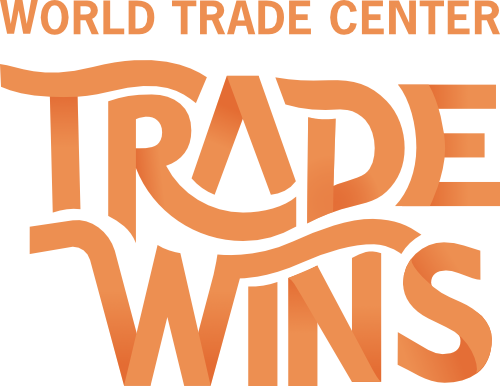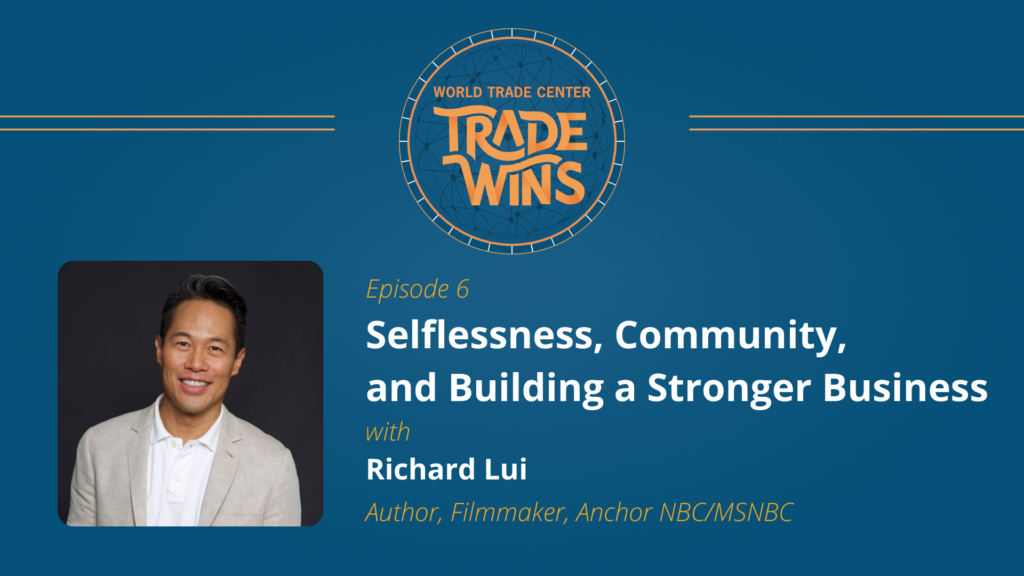Robin van Puyenbroeck 0:08
Welcome to Trade Wins. I am Robin van Puyenbroeck, your host, and I’m excited to present this special series of seven episodes with a set of unique conversations I had with global leaders from the public and private sector during the WTCA 2021 General Assembly. The conversations happened during the last week of April with a live virtual audience from 70 countries. This gave me the opportunity to also poll the global audience on some very pertinent questions. Poll results provided not only further food for thought, but also calls to action. Now let’s get started.
Please join me in welcoming the one and only Richard Lui – news anchor at MSNBC and NBC, author, creator, filmmaker, humanitarian, and human rights activist. Richard will share his story on the selflessness community and also building a stronger business. He recently published a marvelous and must read book on the topic called “Enough About Me.” So Richard, a warm welcome and it’s really great to have you with us. We’re very excited to hear your story. The floor is all yours.
Richard Lui 1:23
Robin, it’s great to be here. Thank you. Good morning, good afternoon, good evening to all of you that are here with us for the World Trade Center Association gathering today. It’s great to be here for the WTCA General Assembly. During the day, I am a news anchor and journalist and have been working lately, I should say for the last decade, with an organization called NBC News and MSNBC and before that with CNN International, CNN domestic, and CNN Headline News. It’s great to be here. I want to talk about something that is a little bit, if you will, on the side and certainly on the side for me as well as a journalist. I’ll just tell you what has brought me to this very idea of selflessness and the idea of the selfless business. First off is, as I’ve been reporting on mass killings and shootings for the past 5-7 years it has been heartbreaking for me. What I often will say is that I’ve become very good at something I don’t want to be good at. I’ve become very good at covering tragedy for hours and the ability to talk about people losing their lives because of, what I would say, is the epitome of selfishness – those who think their views are better and stronger and more right, if you will, to the point where they think they can take other people’s lives. This was true when I stood in the streets of Paris. It’s true when I stood in the streets of Delhi talking about human trafficking. It was also true when I stood in the streets of Uruguay, in the streets when I stood in Poland, Warsaw, as well as I stood in the streets in Ghana, and the United States, across our country as well, which is where I sit today. And that brought me to the concept that we are living through a selfish pandemic.
Richard Lui 3:25
We are all living through a viral pandemic where we have certainly seen the examples of those individuals who believe that their view on what health might mean mask or not. It’s great that we now live in a time where we can sit in our homes and not wear a mask. But those who did not do that in public would affect individuals that are very close to me – my parents who are quite susceptible to this unfortunate virus. When we saw that, that was another example of the selfish pandemic. It’s not about politics. That’s not what I’m here to talk about. I’m here to talk about simply thinking of others. And so that is what brought me together to believe that we are living through a selfish pandemic, because of that easiness of being violent or being hateful. And it’s so simple, unfortunately, and we don’t believe that there’s a price. And so I think as businesses, as Trade Centers, as collections of an important entity in our great societies across the country, we need to remember why we were able to continue on over the last year. That is simply because, if you think about it, April 2020, this same month one year ago, was when half of the world was asked to stay home, close to 4 billion people. It has never happened in the history of the world, the number nor the very percentage. The reason why we were able to survive through that is because of selflessness. There were businesses that provided food, there were organizations and utilities that continued to function to give us water and electricity. Because of all of this, all of the selfless organizations that continued to work despite all of the questions and the unknowns, all of the healthcare workers in the healthcare industry that moved ahead, the folks that kept on working on the vaccines across the world – all of them were there to take care of us, the 4 billion that were asked to stay home. We could not have survived at home if it weren’t for them. And so without the selfless notions that were part of businesses and that were part of organizations such as all of yours and the associations and the businesses that your associations represent was so important.
Richard Lui 6:19
One of the concepts I do want to bring up in this idea of a selfless business is that business was created for that very idea. If we think about it for a moment, when the feudal systems ruled the world and the royal systems ruled the world, the economies were dictated by these feudal leaders. And so businesses led by individuals like yourselves were created so that we could have commerce and we could bring the power of economies lower to people down to us, so that we could decide on products and prices that were relevant to us. That was the beginning of the idea of business. And we think of that concept of where business began outside of a feudal system. That is what we can be today. That means a re thinking perhaps as we have already gone through in the last year where businesses have realigned to be selfless. Where I work, which is in one of the three networks in the United States at NBC News and MSNBC, we now have 5% of our employees at 30 Rockefeller Plaza – 5%. Yet we continue to be able to function as a television network. And something that was highly physical is now something that is highly disaggregated. We’re able to do that because our organization moved quickly in a way that was able to continue to employ people like me and others so that we can keep our economic health, our families, our paychecks, and continue to move on. And many organizations moved in ways that were quite selfless in the way that when the feudal system changed so many hundreds of years ago. And when we look at that opportunity, and I’ll finish my opening comments with this, is that when we look at business evolution, it often equals public good. Just within the last year we’ve seen that. The idea of “how may I help you,” which if for a moment is the core of what business asks – B2B or B2C, or G2B2C, or G2B2B2C? How may I help you? And from that moment, I think we have the opportunity to think of, what does “help” mean to our customer sets? That help is, how can I help you be better? I think we have the opportunity to rethink how we can help each other be better, all of our customers. How can we help you live and exist in a better way? Sometimes it has been misconstrued, misaligned as, “How can I sell you something?” At the end of the day we may end up selling you something, but at the core of what we might ask ourselves, if we were to assign a chief selfless officer in all of our organizations, is to ask that very core question, “How can I help you be better?” And that means that business evolution equals public good. I can dig in more into some of the ideas behind that that I discussed in the book, but Robin, that is the opportunity, it is what we’ve seen in the last year. And it’s not just focused, of course, on the last year because certainly business going back to the history of many epox, such as when the Dutch East India Company was chartered in the 1600s and moves forward to today as we now exist in 2021.
Robin van Puyenbroeck 10:29
Well, thank you, Richard. First, I find your story personally very moving and admire you for all the choices that you took here. I really want to go and drill back down a little bit. It’s fascinating that you take the notion of selflessness back all the way to the escape of the feudal system. But before we go there, please, any more questions, and questions are coming in, please put them in the Q&A box. We’re also going to have a poll up. Richard, we did a poll also with Roberto just before you came on and he thought it was the most scientific poll ever done. So question one is here, “Do you practice the notion of selflessness in everyday life?” And question two for the poll is, “Do you believe that being more selfless creates more personal happiness?” So, Richard, let’s go back to when you spoke about the origins of business and the escape of the feudal system. How can you transport that notion of selflessness then to the role of business today? Yesterday we spoke about purpose driven leadership and about purpose driven companies. How would you put that in a contemporary context? Is there a modern day feudal system that we need to escape where selflessness is the solution?
Richard Lui 11:41
Well, as we look at the great industrial revolutions that have swept the world in our modern millennium, we all have to look at some of the cataclysms that have struck the world that have brought us on to these industrial revolutions. All of them have fundamentally transformed the way that we have lived. As we now go through what might be considered 3.5 or 4.0, I argue that we are going through 4.0, 4.0, the cataclysm that we are facing now, certainly has been and is the viral pandemic. If we were to look at the last industrial revolution, which some might say is the digital revolution, and then you can add in everything else that you might want to this, Robin, is that we saw around the world the end of the Cold War. All of a sudden, the great industries and technologies that were at our behest, at our very front door, sat there wondering what to do, if you will, for a moment. So it moved from the military complex, all of that great brain power and resource, over to industry. At that time, industry meant digital. So that’s what we have benefited from within the last five decades. If the Cold War did not end, I posit, the question might be, where would all the great brain power and money be? It might be on how to kill each other. Instead it moved into a completely different – industrial opportunity. And today as we look at the opportunity that the viral pandemic has brought upon our world, is now, I do believe, a selfless revolution, the opportunity now to realign about what we might think of when we’re thinking of what our businesses can do. It’s no surprise that when we look at the polls, and I know you just did several polls, and Roberto, believing that this is the most scientific and I’ll go with him for a moment but of course I’ll wait to see what the results are before I say that I agree with him, is that we are the great opportunity of realizing that the idea of a social impact business is no longer a social impact business. It’s not a sector, it’s not a group, it’s not a separate category, which was true when I went to business school with the way we thought of it. Now we are all social impact businesses. The opportunity to rethink that in the way that we assess how we do things. I’ve already mentioned one or two ideas, but the very marketing function within itself has sometimes been in/out or out/in. And I do believe now we’re definitely looking at out/in. What does the market want? What is the true function of marketing, which is to understand the market conditions first. The market conditions and the very essence of what that question might be is looking outward first. So we move to “What does the company do better?” or “What does the company want to do?” as opposed to “What does the market want? What does the market demand right now?” It’s definitely a shake to the system, Robin, to go back to your basics, your marketing 101, if you will. Sometimes we do forget that because of the way that our quarter-to-quarter system functions and demands that envelop that.
Robin van Puyenbroeck 15:26
Yeah, I think these are some excellent points, Richard. I definitely want to take some time to also go to the book and to your personal journey. So when you decided to become a caretaker of your father, how did this blend with being a fulltime news anchor? I mean, did you have to make a choice and was this a choice between career versus private, meaning caring for an elder?
Richard Lui 15:48
Yeah, I think you bring up a good point in that, you know, we function as very fervent contributors to our organizations, right? When do we think outside of that? And I think as a news anchor and a journalist, it’s been one of those opportunities as my father was diagnosed with Alzheimer’s eight years ago to reassess why I was getting up in the morning and putting my feet on the floor. Why is it that I went to the organization in Midtown, New York every day, what I like to say is 8 days a week because it certainly felt that way. And then make the decision that 8 days a week was not the right number, that indeed, it was less. It was 2 or 3 days. The people that brought me to where I got certainly were my father and my mother. Now, I didn’t come to that, necessarily, in that understanding until I was writing the book over the last year, actually sitting in this very seat, sitting during a pandemic as all of us did together wherever we’re sitting today and realigning and reassessing what the values that I had and what did they mean. And then I realized, Robin, that the values of what got me to put my feet on the floor when I got out of bed every day were the ones that they lived every day themselves as people that were not of great wealth or background or anything like that. You know, they came to the United States, my grandfather came from southern China, was a poor Chinese farmer, and grew up in poverty. He came to this country illegally for a different outcome for me. He did not want me to be a poor Chinese farmer. And so one of the messages, Robin, that you may have heard me say before is I talk to my grandfather, because I never met him, but when I’m talking in environments like this, I say, “Thank you, Grandpa, for coming to this country because I am a national news anchor. Thank you for making that sacrifice.” Because if he had not been here, I would be a poor Chinese farmer. And so I’m very grateful for the dream that he wanted to have and live out and I’m able to access that. And through his experience, my parents’ experience, my father as a pastor and as a social worker. My mother is an elementary school teacher. They love their professions so much, Robin, even though they were not high paying. You know, me and my family had to live through the welfare and food programs that were offered here in the United States when I was growing up. I remember going to sleep hungry many times. But they were not going to change their profession. They wanted to serve in the way that they knew was right for them. And so that opportunity when I was sitting here writing the book was to realize that I had gotten a lot of values from them. They never shook a finger at me saying you needed to be that way, they just lived that way. And so the decision to work part time to take care of my father was pretty clear as I was reassessing why I made some decisions as I was writing the book. And so the book expresses the one strong value that came from that reassessment, which is the idea that I can think outside of myself in small ways. You know, not in a Desmond Tutu, Mother Teresa way because I can never be that, but I can do it in bite size ways, in everyday ways. And so the book was an expression of that blue collar approach to a white collar idea. The idea that I could do something in small ways every day and it really is sort of a note to myself, if you will, Robin, to remember to be that way. Because I often will think, you know, when I’m making decisions or talking to someone, “Oh, I wrote that, I should try to do that, you know.” I am so imperfect in many ways. So that’s what inspired the book and that’s why I wrote it the way I did, as an anti-self, self-help book.
Robin van Puyenbroeck 20:25
Anti-self, self-help book. I mean it’s incredible. And my question would be, but you sort of already answered it, Richard, is being selfless a conscious decision about everyday things or does it require bigger changes of life? I know in the book you also talk about the notion of this compromise constantly happening in our brain, right? And I want to make the link to how we make decisions. You say, “Well, if it’s 51%, okay, then it’s good, let’s go for it.” So tell us a bit more about what’s happening in our brain and is this a matter of everyday actions? How can we connect with this notion to how we make decisions in our personal life and in business?
Richard Lui 21:03
So the 51% notion is that Desmond Tutu, Mother Teresa idea. In some of the original research I had a scientist and an assistant researcher on the book project. And by the way, if you’re a poetry lover at the end of the book there are four poems. I am no poet but I have always enjoyed poetry. So I brought in two poets to help me with it. In addition, I brought in a couple of comedians. I’m not sure if you got a chuckle or two, Robin, but the idea was to say, you know, the broccoli, as they say in the United States, the vegetables don’t always have to be untasty. So I put a lot of cheese on top of the broccoli. The intention was that, you know, in general, and Robin knows me well, I do like to smile when I can, the idea of being selfless at a 51% level is that we often will get polarized in our decision making and those are decisions to action because it’s not the 100%. And if we can quickly assess the opportunities that are not perfect, that we can do more. And why do we want to just do more? Number one, as I mentioned, we can’t do it in absolute perfection. We just need to accept that. Number two, by doing things that are 51% good or 51% selfless. So, for instance, I will just give a quick example. When you are walking past a person that is homeless, do I give $1, do I give a euro, do I give a shekel or not? And I get polarized. What will they do with that shekel? Will it be a good choice or not? So now I’ve realized in that assessment, well, who am I to be able to understand all of that? If I know that 51% of the time they’ll have something to eat, I should give that dollar. I should give that shekel. And that’s one example of an imperfect movement to action. By doing those actions, Robin, as you know, in the book I say you build muscle tone. The muscle tone is important so that when the big opportunities are in front of us we can leap. We cannot leap without muscle. A good example of leaping are the healthcare workers in the last year. Why is it that I was interviewing so many healthcare workers that have a camera held up in front of them, talking to me in their cars and saying, “I’m scared. I don’t know what’s happening. I don’t know what this virus is, I don’t have enough protective equipment, PPE, for myself as I go to work every day.” And they cry because they can’t bring solace and comfort to those that are dying in front of them. So many questions for these professionals. And then they put down the phone and what do they do? They go right back into the hospital. And it’s because they built muscle tone over the years of walking to a place that put themselves in some risk of disease, of being unhealthy. And because they did that every day, in their brain they knew they were there to serve us and to give of themselves. That was a selfless muscle that we all saw was exhibited across the world of these healthcare workers. And so I posit in the book that we should do the same. How is it that we can go to work every day? How is it that we can create businesses and organizations that are selfless so that when the big moment happens, we can leap?
Robin van Puyenbroeck 24:50
It’s impressive. I liked how you make the analogy to building muscle for truly being able to be selfless every day. Just sort of takes me to maybe a last question on the subtitle of your book, the unexpected power of selflessness. So why unexpected?
Richard Lui 25:08
Well, I’m surprised I’m sitting here with you. That’s how unexpected it is!
Robin van Puyenbroeck 25:14
It could happen in any given context.
Richard Lui 25:17
I think most people are saying that. I’m joking, of course. Why am I sitting here with Robin? Of course, I’m joking. But the idea here is that you don’t know. Some of the unexpected opportunities are not only what I just described. What is the opportunity as you gather the World Trade Centers of the world here today and for the last four days? It’s unexpected that there is power behind selflessness because we think, number one, it is an absolute, which we just finished discussing. Number two, that personally and organizationally that it is not a sacrifice. Selflessness is often seen as, I take $10, 10 euros, 10 shekels out of my wallet and I give it to you, that’s minus 10. My argument is that it is additive – one plus one equals three. And one example of that, personally, is that you live longer, actually, when you’re selfless. You look better. You’re happier. Oxytocin, dopamine levels go up when you’re selfless. Cortisol, the stress chemical goes down in your body. A study, for instance, shows that those 55 and above, and this just happens to be that group that they studied, who were selfless in their volunteer work live for years longer. Those who are selfish in their volunteer work, lived two years less than average. It showed that when you were the most selfless, you were perceived as being twice as attractive. How about that?
Robin van Puyenbroeck 27:04
A lot. I think that that’s a beautiful note to end with. I believe it is in the book. Also, your picture was shared, right? Where there was a selfish Richard, a neutral Richard, and a selfless Richard, all the same picture. And how to be the most attractive person, although it was all the same picture.
Richard Lui 27:27
I’ll take whatever I can get, Robin.
Robin van Puyenbroeck 27:29
Very interesting data point here. So, Richard, thank you so much for this conversation. It’s really moving and it’s an inspiring story. I think I’d love to work with you further and think more about the whole notion of the business side of selflessness and what the impact is there. So with that, thank you so much. And Richard, I almost forgot about the poll. I do want to just mention, question one was. “Do you practice the notion of selflessness in everyday life?” 59% yes and 40% no. So it’s interesting, very interesting.
Richard Lui 29:01
That’s what I would say myself too. I would say 60% no for me, 40% yes of the time.
Robin van Puyenbroeck 29:07
And the second question, “Do you believe that being more selfless creates more personal happiness?” An overwhelming 97% says yes. So I think a lot of us will feel much younger and live longer being selfless.
Richard Lui 29:23
And happier.
Robin van Puyenbroeck 29:24
And that’s the main notion here, and happier. Absolutely.
Richard Lui 29:27
Dopamine all the way, oxytocin all the way.
Robin van Puyenbroeck 29:31
Beautiful. So Richard, with that. Thank you very much for being here.
Richard Lui 29:34
Thank you, Robin.
Robin van Puyenbroeck 29:34
I hope you enjoyed this special episode from our General Assembly. Make sure to tune in for all
